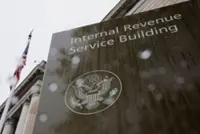ZURICH: Days before a hastily convened press conference on Sunday that would make the world’s front pages, Switzerland’s political elite were secretly preparing a move that would jolt the globe.
While the nation’s central bank and financial regulator publicly declared that Credit Suisse was sound, behind closed doors the race was on to rescue the nation’s second-biggest bank.





